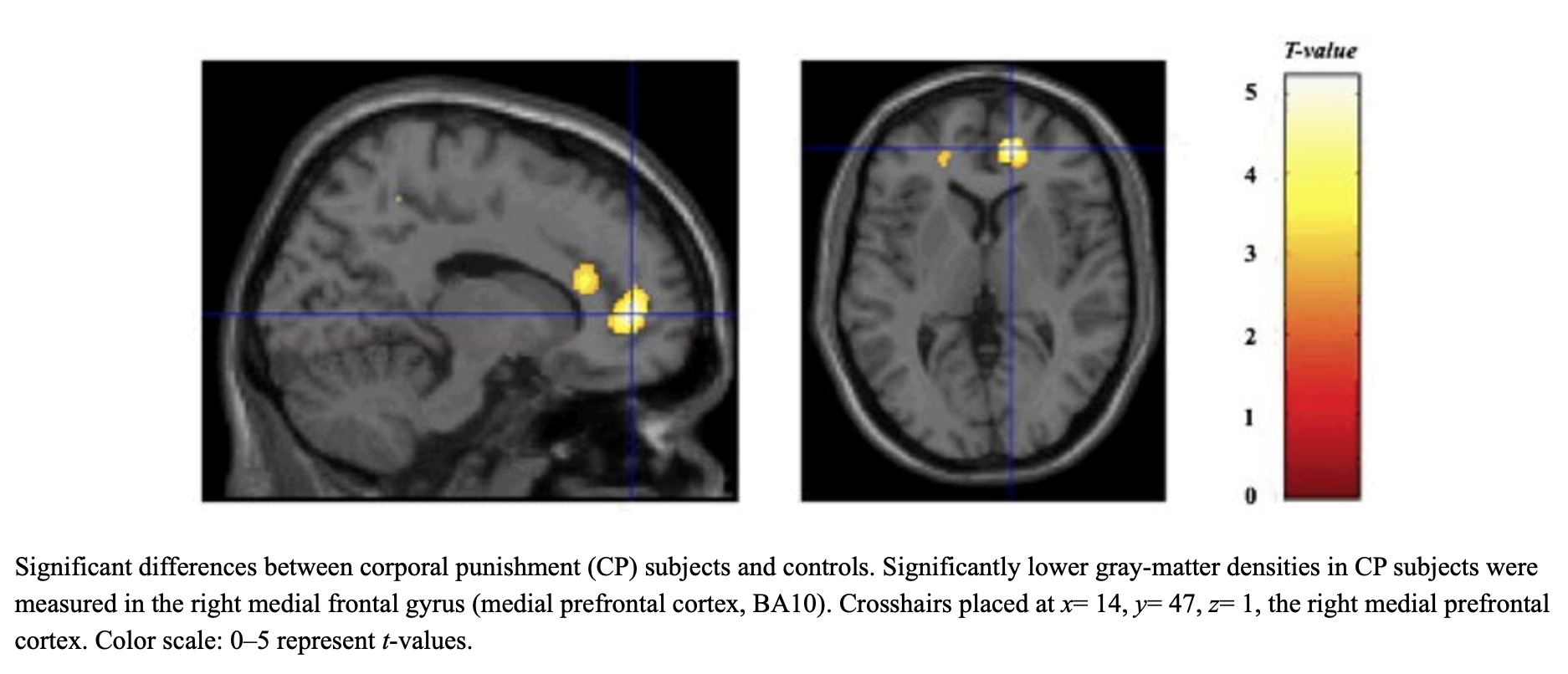Spare The Rod And Spoil Nothing
(Photo: Eric Vondy/Flickr)
The antiquated mode of corporal punishment, that includes a myriad of basal human measures to inflict pain on developing children, could have dire psychological effects on them.
I must have been about 10 or 11 when mother summoned me and my brother for what seemed like one of our pep talks. We spent the summer in Georgia, and I was sure this conversation was going to address the events of the preceding day. This was a time when I was taller than my baby brother and got the green light when it came to most of the rides at six flags. I had apparently ‘abandoned’ him in the waiting area to go on Tower of Terror (I mean who wouldn’t?). So it came as a surprise when the topic wasn’t discipline and repentance; mom informed me that I was henceforth going to be “spared punishment” as I was “old enough”. This was my first true graduation, and although the ceremony was brief, that smug feeling endured for what felt like a lifetime. A look of confusion crossed my younger brother’s face, as I caught a glimpse of his lips quivering in attempted rebuttal, but words evaded him and he remained obediently quiet. I don’t blame him though, mom had her OG Sweet Bird‘s (IYKYK) [1] at arms reach.
Now, more than a decade later, I am contemplating the idea and practice of corporal punishment and what it means for the psyche of a developing child. And to further probe this rather contentious matter, are there no creative ways to enforce discipline other than inflicting pain?
Coming from a not-so-traditional Ghanaian family - considering my mother’s dad not being Ghanaian - it occurred to me that my family was not as conservative as many other families. Safe to say my brother and I had it easier compared to our peers. In third grade, while playing in the sandpit at school, we’d hear from our classmates stories of the almost gory corporal punishments their parents would inflict on them. At times it felt like a competition to figure out who had the hardest time at home. Punishments ranged from lashing with canes, broom sticks, tree branches, ropes, cooking utensils, belts, to even the seemingly harmless (but yet endlessly harmful) public embarrassment. Sometimes I’d make up stories just to try and stay in the game, to promote my situation to the level of my peers.
Not to say these discussions weren’t fun (in a twisted way), especially when we talked about the legendary corner-bending slippers that were so artfully flung. However, the older I got the more I viewed these talks as therapy sessions; making light of distasteful situations to perhaps help us cope. Don’t get me wrong, I’ve had my fair share of ass-beating in and out of the house, maybe a little less savage and not as frequent, but PTSD-inducing all the same.
“from an early age kids are inundated with instructions (and punishment for failing to cooperate) that only serve to subjugate kids and suppress the childhood experience”
For fear of being labeled impetuous, I should mention that most of these disciplinary measures come from a place of love versus acrimony, at least from what I understand for most families. Regardless of the intent, there is no denying the potential and actual ill effects it poses to children. From an early age kids are inundated with instructions (and punishment for failing to cooperate) that only serve to subjugate and suppress the childhood experience; what it truly is to be a kid, to be an explorer without limit. Not only are children’s creative abilities stifled in the process, but other long-term negative effects, especially in cognitive development, ensue.
There is compelling evidence that shows corporal punishment not yielding its desired effect, but rather creating long-term issues for children that piggybacks into their adult lives. The American Phycological Association (APA) states that increased aggression, shorter attention spans, reduced confidence, and mental health issues are but a few of the effects of physical punishment - which the UN Committee on the Rights of the Child officially views as a violation of human rights- in and out of the household. [2]
Physical punishment does nothing but ensure temporary conformity and/or suppression of unwanted behaviors, using fear as the catalyst. The pernicious influences parents have in our childhood years does follow through to adulthood and largely defines who we become. Children who experienced this kind of violence at a young age are more likely to replicate the same violence at home later in life, not only on their children but also on their spouses. [3] Emerging neuro-imaging studies suggest that corporal punishment may reduce the volume of the brain’s grey matter (GMV) in areas associated with performance IQ on the Wechsler Adult Intelligence Scale, third edition (WAIS-III). Needless to say this affects academic and career pursuits. A 19.1% reduction in this region was observed in adults who reported significant corporal punishment as kids. [3][4]
A case for putting down canes and picking up communication
While there isn’t one solution to encourage discipline, there is one alternative parents and guardians should consider; communication. The simplicity of the solution at times betrays how effective a tool it can be. Healthy back-and-forth dialogue between parents and their children is known to aid in allowing kids to self-assess and intrinsically rid themselves of distasteful behaviors, to a much more effective degree than inflicting physical pain. Furthermore, aside circumventing the many fallouts corporal punishment presents, it increases language-related brain function, aiding in increased confidence, ability to communicate better, and a stronger relationship between kids and their parents.[5] This is a stark contrast from the years growing up when we were told to hold our tongues “when big people are talking”. The suppression of children’s opinions around adults does more to harm communication skills and confidence than people anticipate. Not to say this will be easier than reaching for the wooden spoon, but it presents the most salubrious way to reform problematic behaviors in children. This may not be a panacea but it definitely isn’t going to continue hurting kids unnecessarily.
I anticipate a case being made for corporal punishment. The argument that this is how discipline has been imposed going back to our ancestors; how this is and has always been our culture. As true as those claims may be, they still don’t hold water when the human condition is considered. Like some things in our culture, this practice is antiquated and there is in fact a better way forward. We cannot continue hurting ourselves in the name of culture. The biggest disservice is being done to us; the people who actually make up that culture. Chimamanda Adichie popularly said, “Culture does not make people. People make culture. If it is true that the full humanity of women [and children] is not our culture, then we can and must make it our culture”.[6] And so while we reconsider the practice of corporal punishment, we should also acknowledge how these punishments may have been thought of in the past as the best way to influence change, but admit to ourselves that it is time to tweak culture, in a respectful and intentional manner, leading with love rather than animosity.
“Culture does not make people. People make culture. If it is true that the full humanity of women [and children] is not our culture, then we can and must make it our culture”
On pondering why I wrote this piece when I am well past the age where this applies to me or my siblings, the empath in me attempted to answer by convincing myself I was looking out for generation z and beyond. Or maybe this is just a release for me for enduring what most kids in Ghana, and in many families worldwide, endured. Either way it is a case made against unnecessary force and violence, and to rethink and retool (hopefully doing away with weapons) the mindset of the next generation of parents, to improve parenting and give kids a chance to be their truest, unencumbered selves and reach their fullest potentials. What this piece is not is a vilification of our parents/guardians and the undeniable love they had, and still have for us, regardless of whether it was at the end of a wooden spoon. I do not expect things to change overnight but I do expect more thought to go into parenting in reaching the ultimate goal; fostering progeny who will live their best and happiest lives.
Lastly, -and on a lighter note- I’d like to leave you with a compilation video of kids who were interviewed on Steve Harvey’s show. What struck me most is how confident all these kids were. While watching, a mixture of amazement and envy struck me, knowing how far from confident I was at their age (and I assume same for a lot of people raised the traditional way), and pondering the possibilities, in terms of self-efficacy, I could have attained at an earlier age with more confidence.
Drop a comment below let us know your thoughts <3.
References:
[1] IYKYK - if you know, you know
[2] https://www.apa.org/monitor/2012/04/spanking
[3] https://www.ncbi.nlm.nih.gov/pmc/articles/PMC3447048/
[4] https://www.ncbi.nlm.nih.gov/pmc/articles/PMC2896871/
[6] https://www.goodreads.com/quotes/3200748-culture-does-not-make-people-people-make-culture-if-it
Elikem is a director at Very Temporary, to get in touch, send him an email.







